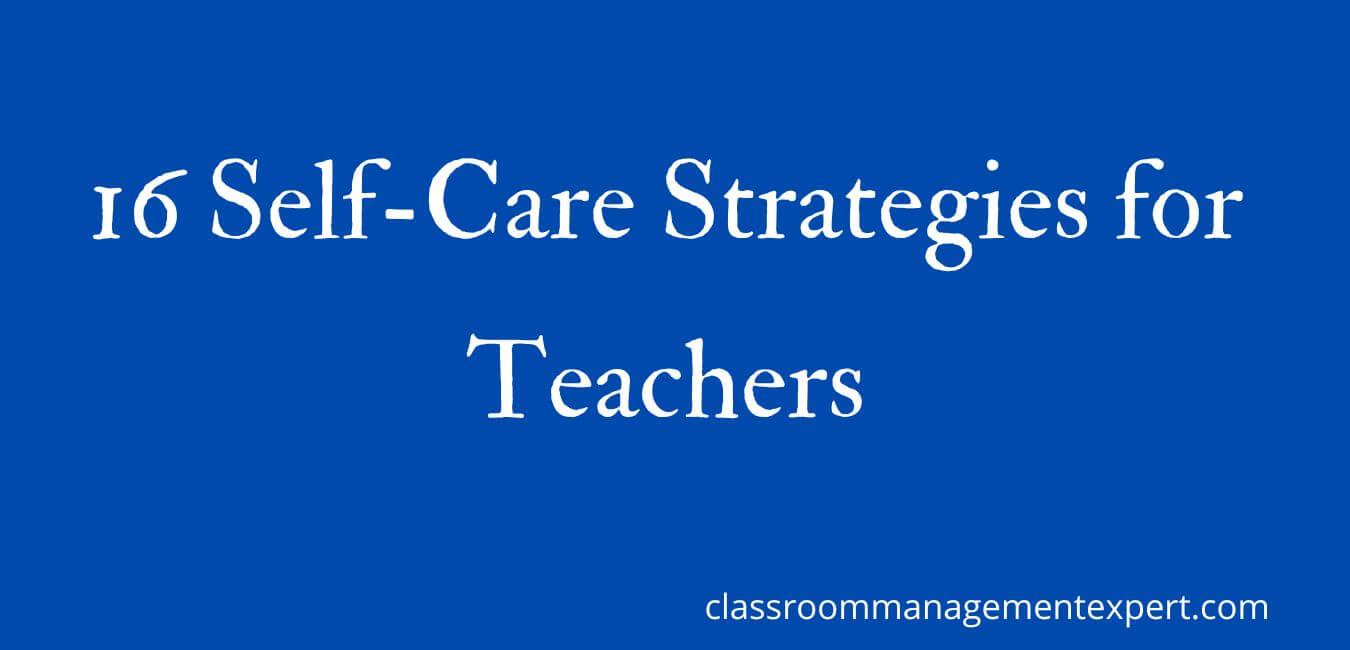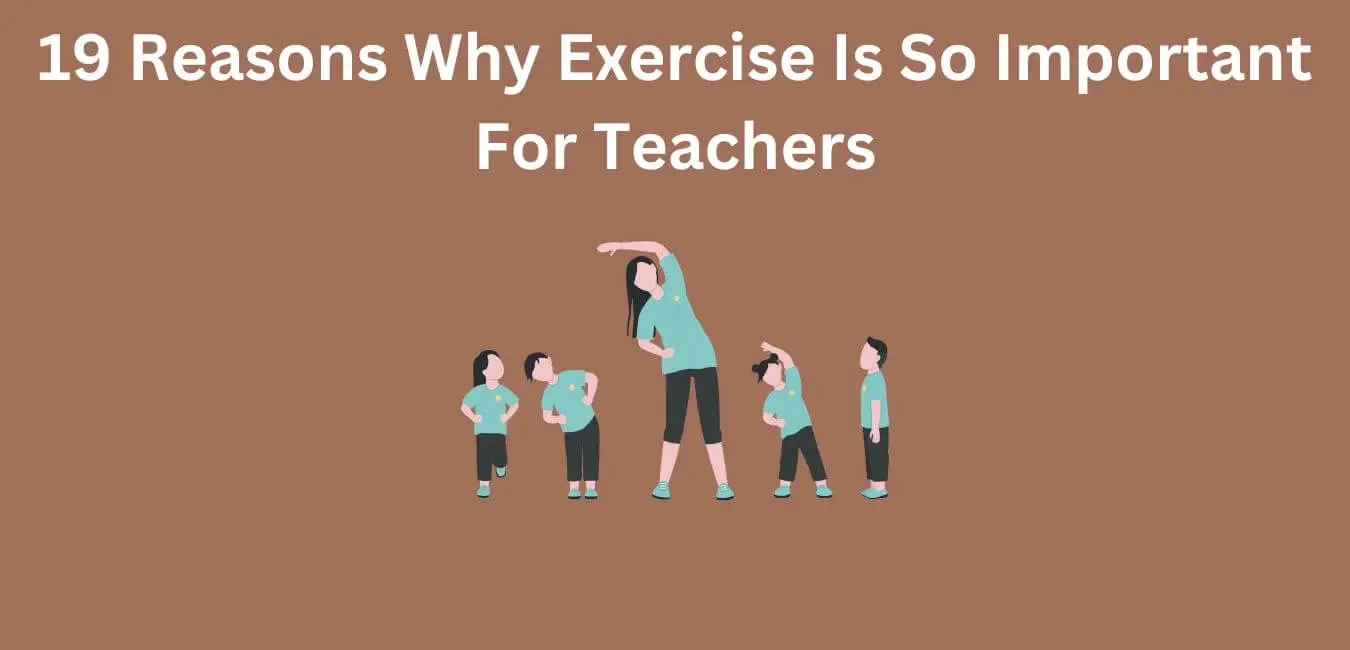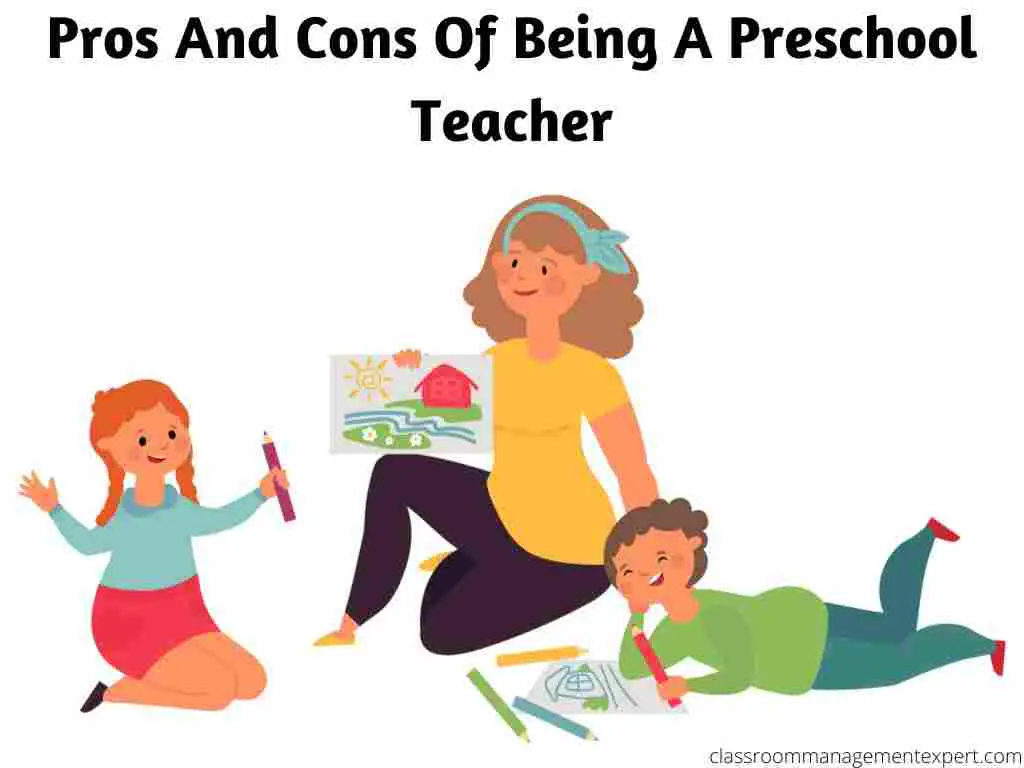Stress is a common part of the teaching profession and can have a negative impact on students.
Self-care strategies for teachers can involve a variety of activities that promote well-being and positive emotions. Some examples include exercise, relaxation techniques, spending time with friends and family, and maintaining a healthy diet. Teachers who take care of themselves are better able to manage stress and provide support to their students. By incorporating self-care into their daily lives, educators can improve their own physical and emotional health while also setting a good example for their students.
Here are 15 self-care strategies that teachers can use to help manage stress and improve their overall well-being.
What is self-care for teachers?
Self-care is the practice of taking care of oneself, both physically and emotionally. It is important for everyone, especially those who are teachers, to make time for self-care. There are many different ways to take care of oneself, and what works for one person may not work for another.
Some important elements of self-care include exercise, relaxation techniques, healthy eating, and spending time with loved ones. Taking care of oneself allows people to better manage stress and be more present in their lives. When teachers make time for themselves, they are better able to take care of others.
Self-care strategies for teachers
1. Set and maintain boundaries.
There are many ways to set and maintain boundaries in order to take care of yourself. One way is to establish specific limits on how much you are willing to do for others.
For example, you might decide that you will only work a certain number of hours each day or that you will not take work home with you. You can also limit the amount of time you spend with people who drain your energy or make you feel bad about yourself.
Another way to set boundaries is to be clear about what you need from others in order to feel comfortable. For example, if someone asks too many personal questions, you might tell them that you need more privacy. Or if someone is always asking for favors, you might let them know that you need some time alone each day.
Setting boundaries can be difficult, but it is very important for taking care of yourself.
2. Acknowledge moments of gratitude or joy.
Teachers are some of the busiest professionals around, and it’s easy to let self-care slip through the cracks. However, taking time for yourself is essential in order to be your best both mentally and emotionally.
One way to care for yourself effectively is to acknowledge moments of gratitude or joy. Doing so can help you refocus and recharge, which is especially important during challenging times.
There are many reasons why celebrating moments of joy helps you care for yourself. For one, it reminds you of your accomplishments and good moments, which can boost your mood and provide a sense of perspective.
Also, savoring positive experiences can help “anchor” you during difficult times, providing a sense of stability and grounding. Lastly, enjoying happy moments can help you connect with others and build strong relationships.
3. Reflect on your feelings and needs.
Self-care is important for all individuals, but it is especially important for teachers. When you take care of yourself, you are better equipped to take care of your students. Reflecting on your feelings and needs is one way to care for yourself effectively.
When you understand your feelings and needs, you can better manage stress and deal with difficult situations. You can also identify what activities and strategies help you feel calm and relaxed. For example, I know that I need time alone each day to decompress, so I make sure to schedule some time for myself each evening.
Reflection also allows you to be more present in your relationships with others. When you are tuned in to your own needs, you can be more understanding and compassionate with the needs of others.
4. Recognize what is and isn’t in your control.
One of the most important self-care strategies for teachers is to recognize what is and isn’t in your control. When you can identify what you can and can’t change, it helps you focus your energy on the things you can actually do something about.
For example, if you feel overwhelmed by grading, you can focus on creating a grading system that works for you and limits the amount of time grading takes. However, if you can’t change the number of students in your class, then worrying about that won’t do any good.
Focusing on what you can control also helps prevent feelings of helplessness or frustration. It can be easy to feel like we’re stuck in a situation and there’s nothing we can do to change it, but identifying what we can change empowers us to take action.
5. Use self-care routines throughout your day.
Self-care is important for everyone, but it’s especially important for teachers. When we’re taking care of others, it’s easy to put our own needs last. However, if we’re not taking care of ourselves, we can’t effectively take care of others. That’s why it’s important to establish self-care routines and stick to them throughout the day.
There are many different self-care strategies that work well for teachers. Some people like to start their day with a relaxing yoga session or a walk in the park. Others find that reading or listening to music helps them relax and clear their minds. Whatever works best for you is what you should do!
It’s also important to take breaks throughout the day. When we’re constantly working, we can easily become overwhelmed and stressed out.
6. Ask for help when you need it.
Self-care is important for everyone, but especially for teachers. Teaching can be a demanding profession that requires a great deal of energy and stamina. It’s important to take care of yourself so you can continue to provide the best possible service to your students. One way to do this is by asking for help when you need it.
There are many reasons why asking for help is beneficial for self-care. For one, it allows you to build relationships with others who can support you both emotionally and mentally. This can be especially helpful when you are feeling overwhelmed or stressed.
Also, asking for help can be a sign of strength, not weakness. It takes courage to admit that you need assistance and to ask others for help. Doing so shows that you care about yourself and your well-being.
7. Prioritize your mental health.
When you’re taking care of others, it’s easy to neglect your own needs. But if you don’t take care of yourself, you won’t be able to take care of anyone else. That’s why it’s important to prioritize your mental health and develop self-care strategies that work for you.
One way to prioritize your mental health is to schedule regular check-ins with yourself. This might mean setting aside time each day to reflect on how you’re feeling or keeping a journal where you track your moods and thoughts.
It can also help to make time each week for activities that make you happy and relaxed, such as reading, spending time outdoors, or practicing yoga or meditation.
Another key component of self-care is establishing healthy boundaries. This means recognizing your limits and not overextending yourself.
8. Take a short break.
Teachers are constantly giving of themselves to their students, colleagues, and families. It’s important to find time for self-care so that you can be effective both professionally and personally. Taking short breaks throughout the day is one way to ensure that you are taking care of yourself.
During short breaks, you can do something calming, such as reading, listening to music, or spending time in nature. You can also use this time to reflect on your goals and priorities. Taking a break can help you stay focused and productive when you return to work.
9. Connect with other teachers.
Teachers are constantly giving to their students and often do not take the time to recharge and replenish themselves. This can lead to burnout. However, there are self-care strategies that can help teachers stay healthy and effective. One of the most beneficial things teachers can do is connect with other teachers.
Connecting with other educators provides a sense of community and support. Teachers can share ideas, resources, and strategies, as well as offer encouragement and advice.
When faced with difficult challenges in the classroom, it is helpful to be able to talk with someone who understands what you are going through. Connecting with other teachers can also help you feel more connected to your profession and give you a sense of purpose.
There are many ways for teachers to connect with one another. Social media platforms such as Facebook and Twitter offer opportunities for educators to connect online.
10. Stay organized.
One of the best self-care strategies for teachers is to stay organized. When your classroom and materials are neat and tidy, it’s easier to take care of yourself. Here are four reasons why staying organized helps you care for yourself:
1) You have less stress when everything is in order.
2) You can find what you need quickly, without wasting time searching through piles of clutter.
3) You feel more in control when your environment is under your control.
4) Orderly surroundings create a calm and productive atmosphere.
Creating and maintaining a system for organizing your teaching materials and personal belongings can be a huge help in reducing stress. It may take some time to get used to, but once you have everything sorted into logical categories, you’ll be glad you made the effort!
11. Celebrate your success.
Teachers are often the unsung heroes of our society. They work tirelessly to educate our children and help them grow into successful adults. However, teachers oftentimes put their own needs last, which can lead to burnout. One way to care for yourself effectively is to celebrate your successes.
When you take the time to celebrate your accomplishments, even small ones, you give yourself a mental boost that can help you continue working hard. Additionally, celebrating your successes can help keep you motivated and focused on your goals.
There are many ways to celebrate your success. You can take a break from work to enjoy some relaxation time, or treat yourself to something you love, such as dinner out or a new book. You can also use the occasion to reflect on what you’ve achieved and how you can continue improving.
12. Embrace your vulnerability.
Most teachers are used to caring for others, but often forget to take care of themselves. Embracing your vulnerability can be one of the most effective self-care strategies for teachers.
When you allow yourself to be open and authentic, you create a space where you can be more compassionate and understanding towards yourself. This can help you respond to stress in a more healthy way and provide you with the compassion and understanding you need to recharge.
Additionally, when we embrace our vulnerability, we create a sense of connectedness with others. This connection allows us to build meaningful relationships that can offer support during difficult times. By embracing your vulnerability, you create a foundation for self-care that is based on authenticity and compassion, two essential ingredients for a healthy mind and body.
13. Start your day with something positive.
Self-care is important for all individuals, but it is especially crucial for teachers. When we take care of ourselves, we are better equipped to take care of others. There are many self-care strategies that can be effective for teachers.
One way to start your day positively is to make time for yourself before you start working. This could involve reading, writing, or spending time in nature. Taking some time for yourself in the morning can help you feel refreshed and ready to take on the day.
It’s also important to be mindful of the foods you eat and the beverages you drink. Eating nutritious foods and drinking plenty of water can help keep your energy levels high.
Additionally, it’s important to exercise regularly. Exercise releases endorphins, which have mood-boosting effects. Finally, it’s important to find ways to relax and de-stress.
14. Practice healthy habits.
Self-care is important for all individuals, but it is especially important for those in professions that require a lot of energy and emotion, such as teachers. It is crucial to have self-care strategies in place so that you can effectively manage your own emotions and energy. There are many healthy habits that you can practice to help you care for yourself.
One of the most important things you can do is get enough sleep. Most people need around eight hours of sleep each night. When you are tired, it is difficult to manage your emotions and energy effectively. Make sure to schedule time for bed and stick to a regular sleep schedule.
Another important habit is exercise. Exercise releases endorphins, which make you feel good. When you feel good, it is easier to manage your emotions and energy. Try to get at least 30 minutes of exercise each day.
15. Have reasonable expectations for yourself.
Self-care is an important part of life, especially for professionals such as teachers. However, it’s often difficult to find the time or energy to properly take care of oneself. One way to make self-care more manageable is to set reasonable expectations for oneself.
For example, don’t expect to get eight hours of sleep every night if you know that you typically need only six hours. Don’t plan on working out for an hour every day if you know that you’re already exhausted after work. Be realistic about what you can accomplish and then work from there.
Creating reasonable expectations can help you better care for yourself because it allows you to focus on your limitations while still doing what you can to improve your well-being.
16. Make time for activities that soothe your stress.
Stress is a part of every teacher’s life, and it can be difficult to find time for activities that soothe your stress and help you care for yourself effectively. However, it is important to make time for these activities, as they can have a positive impact on your well-being.
There are many different self-care strategies that can be helpful, and everyone’s needs will vary. Some examples of activities that can help reduce stress include exercise, yoga, meditation, spending time outdoors, listening to music, journaling, and aromatherapy.
When you take the time to care for yourself in this way, you’ll find that you’re better able to handle the stresses of teaching. You’ll also be more productive and have more energy to devote to your students. So take some time for yourself each day and recharge your batteries!
Conclusion
In conclusion, taking care of oneself is essential for teachers. By using some or all of the self-care strategies mentioned in this article, teachers can reduce stress and restore balance in their lives. We hope that you will find these tips helpful and that they will allow you to enjoy teaching to the fullest extent possible. Thank you for your dedication to our students and to the teaching profession!


















